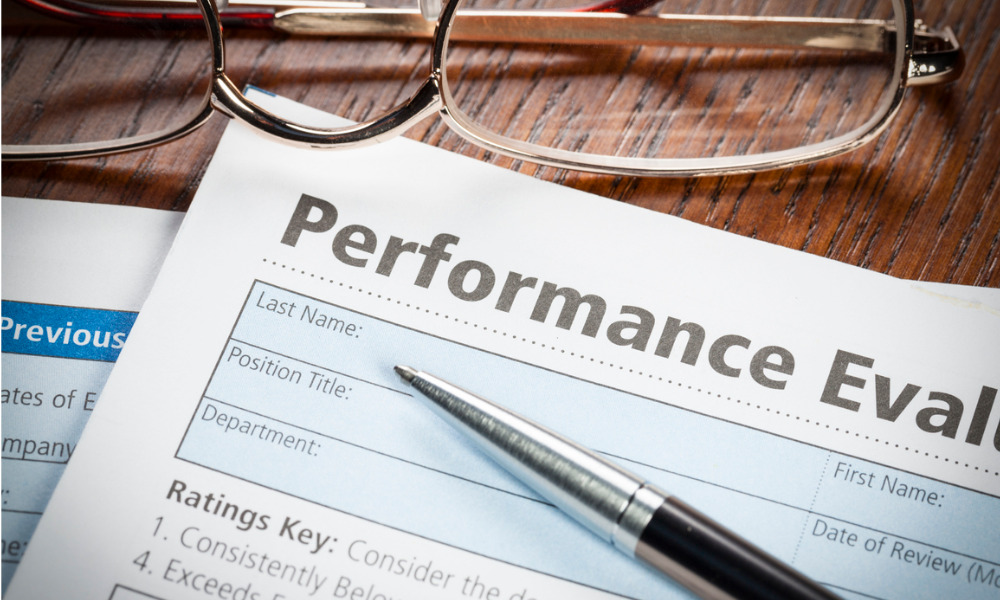
It's essential to be sensitive to what is going on for employees at the moment

Debates about performance reviews - their purpose and impact – take on new intensity during a time when many employees and leaders are working remotely, according to Michelle Gibbings, workplace expert and author of Step Up: How to Build Your Influence at Work.
For some organisations, Gibbings said formal performance reviews are tightly linked to salary increases and bonus decisions. While for other organisations, the focus is more on development and coaching.
“Some organisations try to do a mix of both, and other organisations have dispensed with them,” Gibbings added.
“What's common is that many employees find performance reviews unsatisfactory.”
Indeed, Gallup research found that only 14% of employees strongly agree that their performance review inspires them to improve.
When deciding how and when to conduct performance reviews during this time, Gibbings said there are several factors to consider.
People want feedback
Employees want feedback, but feedback that is meaningful, relevant and well delivered. Feedback delivered in the right way and with the best intentions is always useful. This feedback doesn't need to be part of a formal performance review process.
Feedback, which is delivered 'in the moment', is often the most relevant and useful for employees because it is timely and more tangible.
Context matters
The pandemic has heightened anxiety and raised stress levels across the board. Many employees are dealing with increased uncertainty, shorter working hours, reduced pay, impacts on loved ones, and juggling home-schooling; just to name a few of the additional pressures.
It's essential to be sensitive to what is going on for employees at the moment. These are unusual times, and it is more important than ever for leaders to reach out and support their team members and to show care and compassion.
This context doesn't mean you step away from feedback that is hard to hear. It does mean that the leader needs to be conscious of the operating environment and be acutely alert to how any feedback is delivered and received.
Be clear on the purpose
If you are conducting formal performance reviews, be clear on the discussion's purpose and the best possible timing. This decision process includes deciding on whether to hold reviews now, or whether it is more effective and appropriate to delay and conduct them later in the year.
In some situations, where timing can be flexible, it will be worthwhile delaying until the work environment has settled.
Focus on the impact
Performance reviews can motivate and demotivate, depending on the skill of the leader in conducting the conversation.
At this time, HR leaders will want to provide additional support and guidance to leaders on how to conduct performance reviews effectively in a remote setting.
Top tips for leaders
Many of the tips for conducting useful performance reviews remain the same, regardless of the location: remote or face to face.
Leaders must be prepared for the conversation, and so too, the employee. As always, it is a two-way conversation, not a one-way monologue.
In a remote environment, there are additional considerations. Firstly, make sure the technology the leader is using works consistently. There's nothing worse than being impacted during a conversation by poor connectivity. Similarly, find a quiet space where the leader won't be interrupted by phone calls, children wandering into the room or any other disturbance.
Likewise, encourage the team member to think about the best location for this conversation. Ideally, it will be quiet and away from other people in their home.
Leaders will want to be mindful in situations where that's not possible and recognise the impact that may have on how they receive feedback and participate in the conversation. Having other people around them may constrain what the team member is willing to share.
Lastly, at the start of the conversation, both the leader and team member should be clear on what they want to get out of the conversation. Recognise that the conversation may need to have more time allocated, and allow time for reflection. At the end of the discussion, wrap up with specific next steps.
Feedback matters. Always has and always will. The most important thing is to ensure the delivery of feedback is meaningful, able to be received, relevant and actionable.